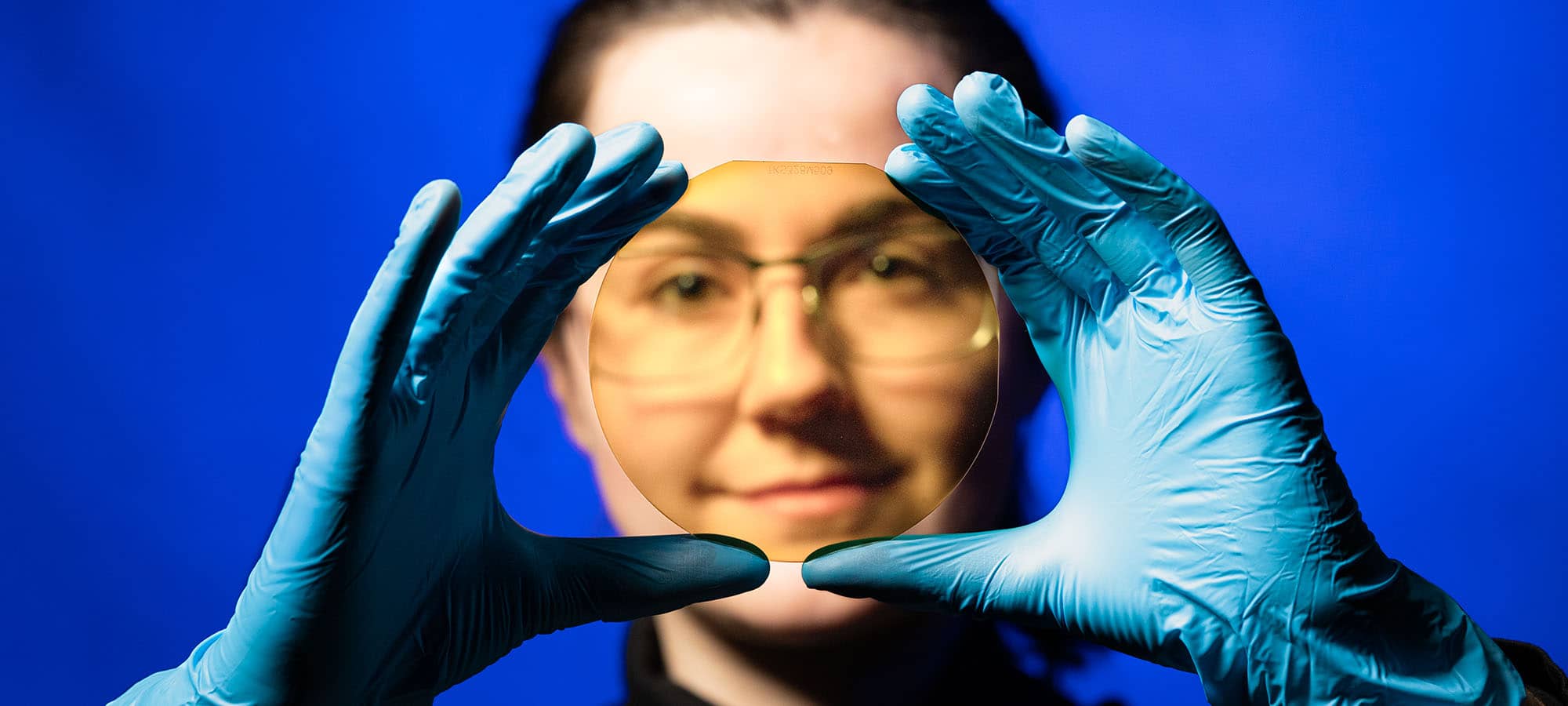
Leading the Semiconductor Economy from the Lab to Fabrication
The University of Arkansas is uniquely positioned to be a leader in the United States’ future semiconductor economy. Semiconductors, such as silicon, are essential materials in most electronic devices and advance performance in fields such as healthcare, the military, computing and transportation.
We’re building partnerships across the Heartland, we have more than 30 years of success in advanced electronic packaging and we are home to the only open-access silicon carbide semiconductor facility for research-to-prototyping in the country.
The benefits to the state, region and country are transformative:
- Establishing the U.S. as a global leader in semiconductor performance and production, and reducing the country's reliance on imports
- Attracting highly skilled workers to Arkansas and the Heartland
- Educating and training the next generation of researchers, leaders and innovators
- Bridging university research and high-volume production of semiconductors
- Producing new technology that leads to startup companies, attracts new industries and strengthens industry partners
Collaborate with Us
The University of Arkansas collaborates on semiconductor R&D with leading institutions such as Stanford University, University of California-Berkley, Montana State University, George Washington University and Arizona State University. We are also partnering with the National Renewable Energy Laboratory, Argonne National Laboratory and Sandia National Laboratory. We have access to some of the largest companies in the world, and we are building new partnerships every day. Interested in working with us?
Collaborate with UsElectrified Transportation
U of A engineering researchers conducted a successful test flight of their electric motor drive on a hybrid electric aircraft. NCREPT researchers designed and developed battery-powered motor drives that can be used in lieu of one of the gas-powered engines. These motor drive are also used in large Caterpillar bulldozers and mining equipment, which can be used at high altitudes and reduce underground fumes.
Solar Energy Technologies
2020: Researchers received a $3.6 million award from the U.S. Department of Energy Solar Energy Technologies Office to advance technologies that integrate solar power systems to the national power grid. The research will focus on developing cybersecurity systems for photovoltaic energy technology and devices, especially solar PV inverters, the power electronic devices that link solar power arrays to the grid.
Next Generation Technologies
2019: Researchers developing the next generation of electronics and power modules for electric and hybrid vehicles with help of a $1.5 million grant from the U.S. Department of Energy.
Leading the Way
Xiaoqing Song Receives NSF Award to Research Gallium Oxide-Based Electric Vehicle Traction Inverters
The gallium oxide devices being researched by Song will foster next-generation, high-density and high-operation-temperature power converters.
Wei Du Receives NSF Award to Research Development of Semiconductor Lasers
Dr. Wei Du, a professor in the Electrical Engineering and Computer Science Department, has been granted $300,000 by the National Science Foundation (NSF EPSCoR). The grant will help Dr. Du's research in the development of semiconductor lasers and passive devices on a singular sapphire platform for integrated microwave photonics (IMWP).
U of Arkansas to Build Groundbreaking SiC Research Facility
With $18 million from the National Science Foundation (NSF) and additional support from the Army Research Laboratory, the University of Arkansas has broken ground on a national silicon carbide (SiC) research and fabrication center.
Grants
- MonArk NSF Quantum Foundry Established With $20 Million Grant
- $18M NSF Grant to Build Multi-User Silicon Carbide Research and Fabrication Facility
- Army Grants to Bolster Unique, New Semiconductor Fabrication Facility
- $10.3 Million Grant Will Establish New Energy Frontier Research Center
- $4.4 Million Grant to Build Prototype of Next-Gen Night Vision Technology
Podcasts and videos
Creating Materials and Devices With Quantum Technologies
Hugh Churchill, associate professor of physics in the J. William Fulbright College of Arts and Sciences, discusses the MonArk NSF Quantum Foundry and portable air filters that remove infectious airborne particles, including respiratory droplets that carry coronavirus, from indoor spaces.
Lab to Fab; Mantooth Discusses Semiconductor Research and Fabrication at the U of A
Distinguished Professor Alan Mantooth defines semiconductors and discusses why the University of Arkansas is uniquely positioned to be a semiconductor research and fabrication hub in the heartland of the United States.